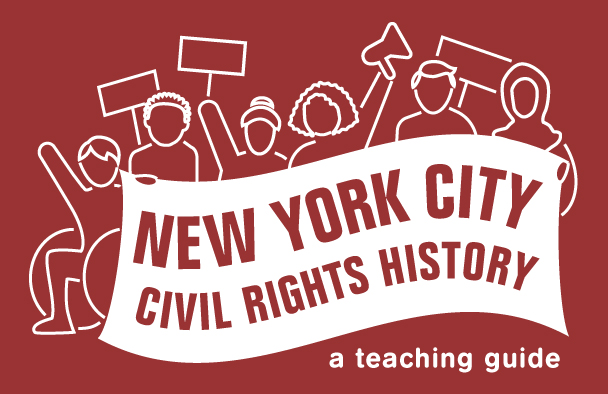Check Your School!

Date: undated, c.1956
Caption: This is a copy of the questionnaire the NAACP distributed to Black and Puerto Rican families to document the conditions within their segregated schools in the 1950s. It is possible that some students collaborated with their parents to complete these forms, as they had knowledge of their schools. This data was then used to compare conditions in these schools to the segregated white schools throughout the city.

Ella Baker was an influential organizer in New York City struggles against segregated schools, police brutality, voting restrictions, and more. She pushed for freedom. Baker saw the pursuit of liberation as a collective effort, and she valued the views and passions of young people. As historian Barbara Ransby put it in her biography on Ella Baker, Baker believed “people had many of the answers within themselves; teachers and leaders simply had to facilitate the process of tapping and framing that knowledge, of drawing it out…Baker’s pedagogy was democratic and reciprocal…her view of teaching for liberation was based on the need to empower ordinary people to dig within themselves and their collective experiences for the answers to social and political questions. She did not want her students to see her as the repository of all knowledge but to discover their own insights and knowledge base.”1
Ella Baker, who moved to New York after graduating from Shaw University in North Carolina, became deeply involved in the struggle to desegregate New York City’s schools.2 In line with her view of movement building and democratic action, she worked with parents and young people to define their goals and work together for change. This questionnaire distributed to parents and students to use with their own schools reflects that commitment to grassroots activism based on the knowledge of young people and families. It illustrates Baker’s organizing philosophy in practice.
Barbara Ransby, Ella Baker and the Black Freedom Movement: A Radical Democratic Vision (Chapel Hill: University of North Carolina Press, 2003), 358-359. ↩︎
For more on Ella Baker, see the “Jansen Must Go!” and “Commission on Integration” documents. ↩︎
Categories: parent activism, student activism, K-12 organizing
Tags: school facilities, student achievement, racist segregation, organizing
This item is part of "Before the Boycotts: Youth Organizing and Direct Action" in "Boycotting New York’s Segregated Schools"
Item Details
Date: undated, c.1956
Source: Schomburg Center for Research in Black Culture, Ella Baker Collection
Copyright: Public domain. Courtesy of the Schomburg Center for Research in Black Culture.
How to cite: “Check Your School!,” in New York City Civil Rights History Project, Accessed: [Month Day, Year], https://nyccivilrightshistory.org/gallery/check-your-school-questionnaire.
Questions to Consider
- How did Ella Baker’s organizing work differ from Bayard Rustin’s? How are those differences complementary?
- How might this document and the process of filling it out have impacted how students and families interacted with schools?
- How does this questionnaire reflect Baker’s organizing commitments and teaching beliefs?
- What would you find if you completed this questionnaire about your school?
References
How to Print this Page
- Press Ctrl + P or Cmd + P to open the print dialogue window.
- Under settings, choose "display headers and footers" if you want to print page numbers and the web address.
- Embedded PDF files will not print as part of the page. For best printing results, download the PDF and print from Adobe Reader or Preview.
